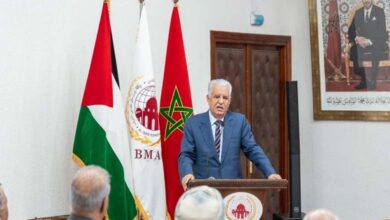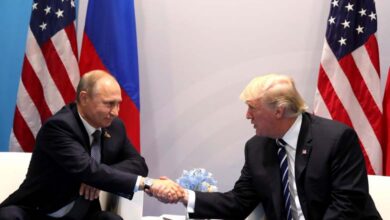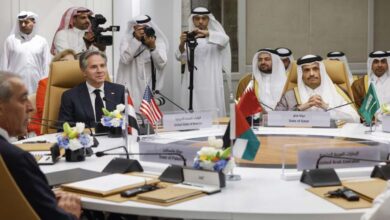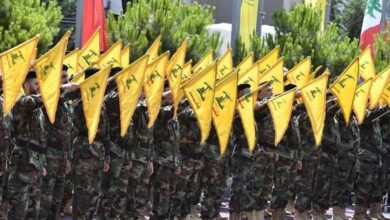Yemen’s Muslim Brotherhood Thwarts Efforts to Appoint Ambassadors in Riyadh and Berlin… Details
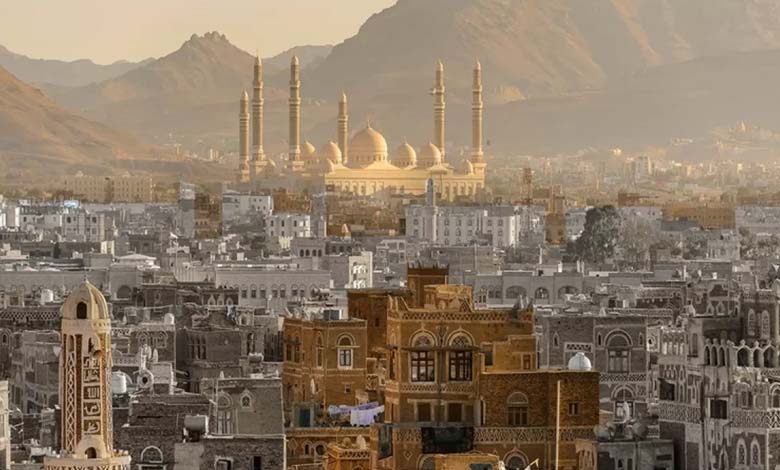
The Yemeni Presidential Leadership Council continues to fail in appointing ambassadors to represent Yemen in Riyadh, the capital of Saudi Arabia, and Berlin, the capital of Germany, despite the importance of these two countries in supporting Yemen’s economic and developmental efforts.
-
Khat Taxes… A Realistic Picture of Corruption by the Muslim Brotherhood in Yemen
-
Corruption of the Muslim Brotherhood in Yemen… Embezzlement, Extortion, and Trading in People’s Needs
Sources close to Al-Omanaa reported that the Council has been unable to appoint ambassadors in Riyadh and Berlin due to disagreements among its members and their failure to reach a consensus on the ambassadorial appointments. The Islah party, “the Yemeni branch of the Muslim Brotherhood,” fears a reduction in its share of positions within the legitimate Yemeni government, particularly in the Ministry of Foreign Affairs, where it holds significant sway.
The sources also indicated that the possible replacement of northern ambassadors by southern figures might be one of the reasons for this failure. For instance, Yahya Al-Shaibi, a southerner, served as ambassador to Germany, and Shaia Al-Zindani, the current foreign minister, was ambassador to Riyadh. Both hail from the South.
-
Yemen’s Muslim Brotherhood Thwarts Efforts to Appoint Ambassadors in Riyadh and Berlin… Details
-
Southern Yemen: The Devastation Caused by the Diabolical War Led by the Muslim Brotherhood and Houthi Militias
According to the sources, each member of the Presidential Council has their own nominees, particularly Islah, which is eager to maximize its benefits. As a result, the Council has continued to fail in resolving the issue.
Observers, in exclusive statements to Al-Omanaa, noted that the Council’s failure to appoint ambassadors highlights a broader failure within the institution, adding this episode to a long list of setbacks.
-
Terrorism: A Product of the Muslim Brotherhood and the Houthis… Yemenis React to Major Massacres in the South
-
Terrorism: A Product of the Muslim Brotherhood and Houthis… Yemenis React to Large-Scale Massacres in the South
The observers also pointed out that the majority of ambassadors come from the northern provinces of Yemen, questioning why the southern members of the Presidential Council have not enforced a decision regarding these appointments, and where their role in this matter stands.
The Islah party, the local representative of the Muslim Brotherhood, fears that changes in the leadership of various foreign diplomatic missions and administrations could reduce its influence within Yemen’s legitimate governmental institutions.
-
The Muslim Brotherhood’s militias loot Yemeni properties and occupy their homes in Taiz… Details
-
They organize a forum to counter Houthi ideology… The Muslim Brotherhood continues to mislead Yemenis
In the past, media affiliated with the party have criticized President Al-Alimi for the way he has introduced changes at the top of Yemen’s legitimate institutions, accusing him of unilateral decision-making and questioning the criteria he uses to select officials.
Some criticisms have taken a regional tone, accusing the president of reserving power for those from the southern regions, and claiming that he is thereby serving the interests of the Southern Yemeni state restoration project, led by the Southern Transitional Council, as reported by London-based Al-Arab newspaper.


